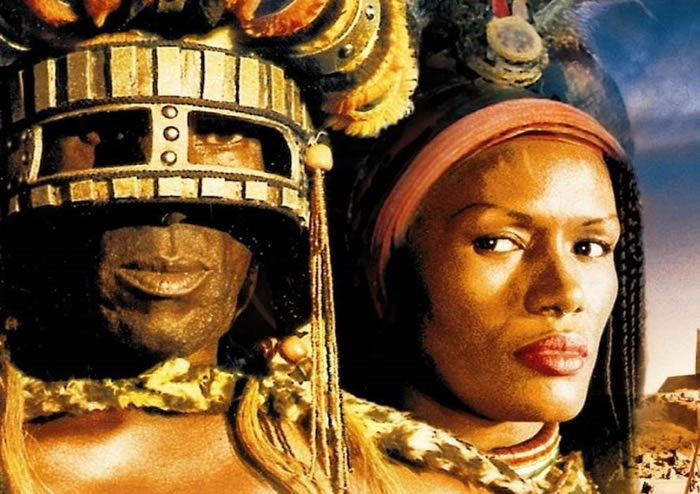Nandi: The Woman Whom Shaka Zulu Killed For And For Whom He Was Killed
- Home
- Nandi: The Woman Whom Shaka Zulu Killed For And For Whom He Was Killed

Nandi: The Woman Whom Shaka Zulu Killed For And For Whom He Was Killed

The grief accumulating from the loss of a loved one has the tendency of shattering the joy, internal peace and balance with which we hitherto carried ourselves about. The wise ones have said that when you lose somebody dear to you, one with whom you shared camp and company, the loss takes from you its generous measure of the shared moments, beliefs and ideals that bonded the parties in question.
So in the end, the victims of loss become hollow, often times wanting of a similarly meaningful connection akin to the one they had with the deceased loved one. And in instances where one is unable to acquire such depth of relations as was characteristic of the previous one, one tends to fall into a deep, dark abyss of depression, and all those self-destructive behavioural traits resulting from it.
Victims of such calibre gain momentary relief from their emotional entanglement when they inflict a measure of that dark and sad feeling loitering deep within on others; a misguided emotion-driven defence mechanism feeding into the popular age-old adage that says ‘misery loves company’.
One of such individuals could have been the mighty ruler of the Zulus; Shaka kaSenzangakhona Zulu who was murdered by his two half-brothers namely Dingane and Mhlangana at KwaDukuza in 1828.
The events leading to his murder are woven of a purely social, political and historical fabric. The assassinators whose hands facilitated his death acted upon the effects of his supposed ‘madness’, but who cared to lead him out of his suffering? The statements and suppositions herein submitted are not intended to serve as justifying bases for the reported ‘horrors’ brought down on the Zulu nation by Shaka kaSenzanghakhona Zulu during those fateful times when he struggled with himself and shared his struggle with the ruled mass. But they are meant to throw some light on the underlying forces and mechanisms that could have motivated his ‘unruly’ behaviour after the loss of his mother.
Shaka kaSenzangakhona Zulu was born an illegitimate son of sub chief. What this means in the Afrikan traditional cultural parlance is that he came by mistake, even though his birth was per his future hold over the Zulu nation warranted by the hands of time. As a child of a supposed ‘mistaken’ birth, Shaka and his ‘illegitimate’ mother (whatever that means) were treated with generous measures of disdain and envy. They were seen as ones who had come to take from the family pot of that to which they were not entitled. The blame and judgement for his ‘mistaken’ birth were not poured unto his father whose choice it was to deliberately or unintentionally plant Shaka in his mother’s womb.
Young Shaka kaSenzangakhona Zulu, therefore, lived amongst a people he referred to as ‘family’ for a considerable length of time, but in internal seclusion, occasionally coming out of his mental shell to bask in the warmth of his mother’s love. Shaka’s mother was one of the major few who recognized his place amongst the living, and accorded him what best environment she could afford under a discriminatory roof for the advancement of his curiosity and subsequent growth and development. This strengthened the bond between mother and son, and as his safe haven, Shaka resolved to protect his light of escape when the pain of rejection came pouring in from members of his ‘family’, especially his two half-brothers; Dingane and Mhlangana.
With time and as the baseless envy which had by this time matured into a fully grown hatred persisted in persecuting young Shaka and his mother, circumstances found them driven out of their ‘family’ home even after his mother was installed as the third wife of Shaka’s entitled father. Thus, given all the pain accumulated from familial rejections, young Shaka had to carry the ultimate childhood burden of pushing through the thick maze of adulting and all its confusions without a fatherly authority to fall back on. But there was his mother!
Shaka found himself a respectable place in the military unit of the Mthethwa with Dingiswayo; a formidable military strategist as its head. His place in the military can most probably be related to his quest for the assertion of the masculinity embedded in his manhood; one that was denied a well-rounded development in the absence of his father. So he killed his older brother; Sigujuana who ascended the Zulu throne upon the death of their father in 1816. A typical replay of the Freudian Oedipus Complex.
He finally assumed control over the Zulu kingdom with the help of the Mthethwa military unit after his former ally and accomplice; Dingiswayo was murdered. His deep-seated desire for power to subdue a lingering childhood helplessness was hereby well compensated for. To prove himself worthy of his newly acquired position against a backdrop of the helpless conditions surrounding his birth and upbringing, he made the military formation of the Zulu kingdom highly potent, and with it he conquered.
Nandi, Shaka kaSenzangakhona Zulu’s mother died in October 1827. His rock, warmth and light in his deepest, darkest abyss finally transitioned into the unseen land of the ancestors. This singular loss did the ‘mighty’ Shaka in. Unable to compensate for the loss of his motherly fortress by himself, he roped in the masses to share in his plight. The annals of history report that Shaka forbade the planting of crops and the use of milk. He overtasked his military units and carried out the killing of pregnant women and their fathers; eliminating traces of his disturbed birth and painful childhood.
Dingane and Mhlangana plotted and assassinated their ‘mad’ half-brother with Dingane ascending the throne. But who cared to share in his story and his love for his mother?
Source: Face2face Africa
- Share
Classic Ghana
Classic Ghana brings you into a fun world of arts, entertainment, fashion, beauty, photography, culture and all things in between. Let’s explore these together!







